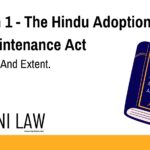Introduction: Charges Under NDPS Act
The Madras High Court has quashed a criminal case against a man accused of harbouring an offender on charges under NDPS Act. The court held that a confession by a co-accused, without supporting evidence, is insufficient to prosecute someone.
Case Background
Karthick was charged under multiple sections of the NDPS Act and Section 120B of the IPC. The prosecution claimed he helped an accused person secure a job after the latter was involved in transporting 105 kg of ganja. Authorities had seized a vehicle linked to the accused, who allegedly attempted to smuggle the drugs to Sri Lanka.
Three accused fled the scene, and another picked them up in a car. Based on a confession from one of the arrested accused (A3), the police added Karthick to the list of accused. They claimed his act of helping A3 get a job amounted to harbouring.
Petitioner’s Stance
Karthick denied all involvement. He argued that he was unaware of the crime and had only helped his brother-in-law (A3) find employment in Tirupur. He claimed the police had no evidence except for A3’s confession, which is inadmissible in court.
Court’s Ruling
Justice P. Dhanabal emphasized that a co-accused’s confession to the police holds no evidentiary value unless supported by other material. In Karthick’s case, there were no witnesses, documents, or independent statements to link him to the alleged crime.
The court pointed out that arranging a job for someone does not equate to harbouring, especially when there’s no proof of criminal intent or awareness. The investigation officer also failed to examine any employer or colleague who worked with A3 in Tirupur.
Final Verdict
The court concluded that mere association or help, without knowledge of criminal activity, could not justify prosecution. Since no corroborative evidence existed, the court quashed the charges against Karthick. The judgment reinforces that implicating someone under the NDPS Act requires concrete proof, not just a co-accused’s statement.











